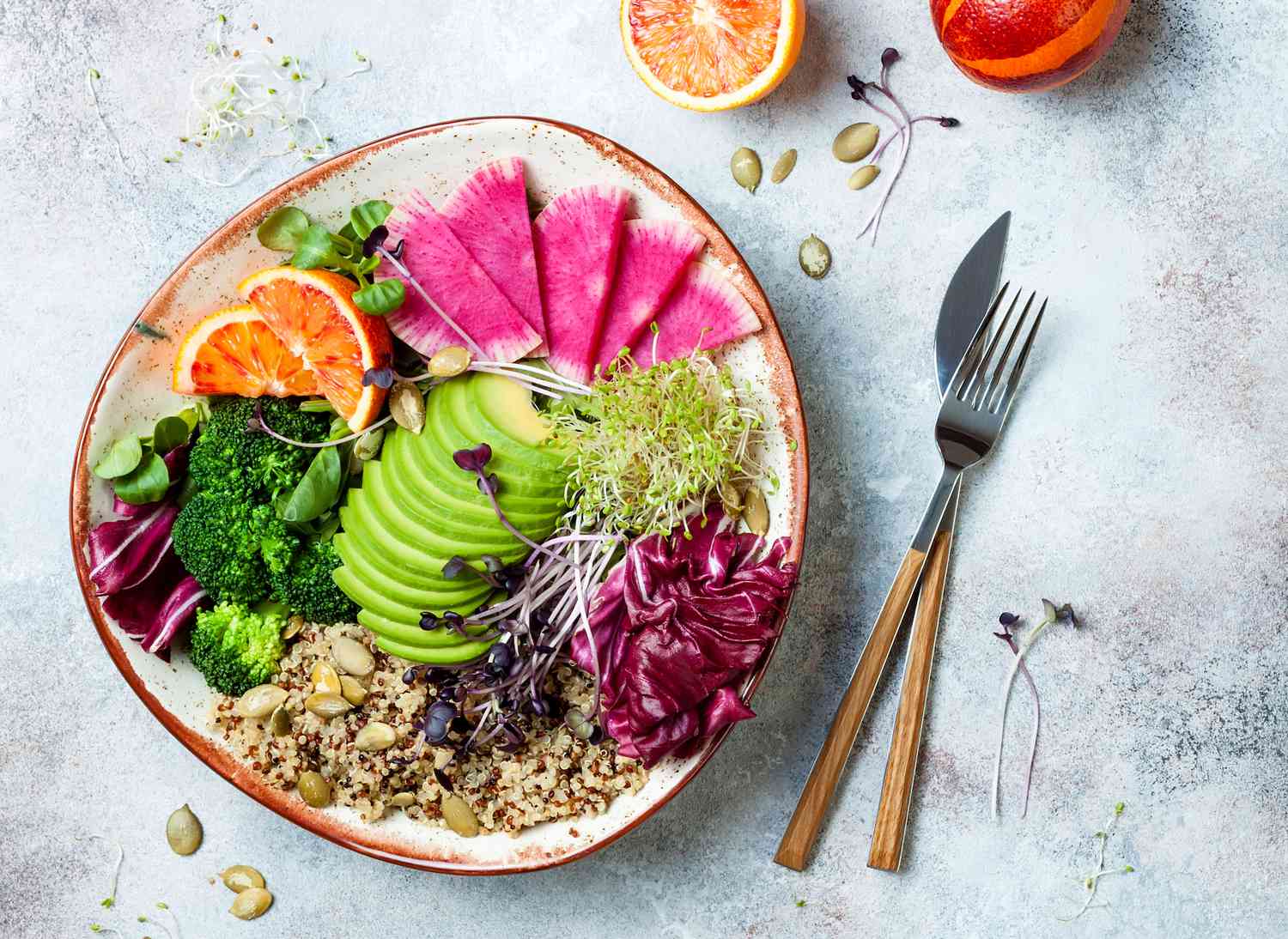Why Mindful Munching is the Answer to Modern Dietary Dilemmas?
In an era where fast food isn't just a type of meal but also a way of life our connection to the food we consume has become somewhat fractured. We live in paradoxical times. On one hand we have unprecedented access to information about nutrition wellness and global cuisines. Yet on the other we find ourselves grappling with dietary challenges like never before — from the obesity epidemic to stress-induced binge eating. Amidst this whirlwind the concept of eating isn't just about sustenance or even indulgence. It's about finding an anchor in our frenetic lives a moment of introspection and truly experiencing the joy of nourishment. This is where mindful munching enters the scene. It's not just a buzzword; it's a lifestyle shift aiming to recalibrate our relationship with food in the most holistic sense.
What are the Modern Dietary Dilemmas?
- Overeating: With portions ballooning in size and high-calorie snacks at our fingertips it's easy to consume more than our body needs.
- Stress Eating: Emotional turbulence often pushes us to seek comfort in food leading to unhealthy binging.
- Loss of Connection with Food: Many of us have lost touch with where our food comes from the labor that produces it and the journey it takes to reach our plates.
- Nutrient Deficiency: Despite the abundance many are deficient in essential nutrients largely because we choose convenience over quality.
- Dietary Confusion: With the constant influx of new diets and health trends knowing what’s truly healthy can be bewildering.
Mindful Eating – The Breakdown
Mindful eating at its core is about being present during meals. It’s about appreciating the colors textures and flavors in every bite listening to your body's hunger and fullness cues and removing distractions to fully engage in the experience of eating.
Unpacking the Benefits of Mindful Eating
- Combats Overeating: By paying close attention to your body's signals you begin to recognize when you're satiated reducing the chances of overeating.
- Mitigates Stress Eating: Mindful eating fosters emotional regulation helping you differentiate between hunger and emotional triggers that prompt eating.
- Enhanced Nutrient Absorption: Eating slowly and chewing thoroughly promotes better digestion and nutrient absorption.
- Weight Management: Being attuned to your body’s needs often translates to healthier food choices and portion control aiding weight management.
- Heightened Food Enjoyment: When you immerse yourself in the eating experience you tend to savor and enjoy your food more.
Mastering the Art of Mindful Munching: Tips and Tricks
Eating is one of life’s simplest pleasures yet many of us have become so preoccupied with the hustle and bustle of daily life that we eat without truly tasting enjoy without truly savoring. Mindful munching is the practice of paying full attention to the experience of eating and drinking both inside and outside the body. This mindfulness technique brings our attention to the colors textures flavors and aromas of our food transforming meals into meditative moments.
1. Start with a Gratitude Moment: Before diving into your meal take a moment to express gratitude. Thank the universe the farmers and even yourself for the meal you're about to enjoy. This small act of gratitude sets the tone for a mindful meal.
2. Digital Detox: Make mealtimes a tech-free zone. Without the distraction of phones TVs or computers you can focus entirely on the food and the act of eating.
3. Engage All Your Senses: Before taking a bite notice the color texture and aroma of the food. When you take a bite focus on the taste and the sound of the crunch.
4. Eat Slowly: It takes about 20 minutes for your brain to realize your stomach is full. Eating slowly not only aids digestion but allows you to recognize when you’re truly full.
5. Chew Thoroughly: Digestion starts in the mouth. Chewing breaks down food and mixes it with saliva making it easier for the body to process. Aim for 30 chews per bite if possible.
6. Eliminate Distractions: Choose a dedicated space for meals free from distractions. This means turning off the TV keeping reading materials away and truly focusing on the meal.
7. Check-In with Yourself: Before eating ask yourself if you’re truly hungry or just eating out of boredom or emotion. By recognizing the reason you can choose to eat mindfully or find another way to satisfy your need.
8. Portion Control: Instead of eating straight from the packet or box portion out a serving size into a bowl or plate. This prevents overeating and promotes awareness of how much you’re consuming.
9. Engage in Conversations: If you're eating with someone engage in meaningful conversations. It not only enhances the dining experience but also encourages slower eating.
10. Practice Mindful Drinking: Extend mindfulness to beverages. Sip slowly and savor the taste. Whether it’s tea coffee or water treat each sip as an experience.
11. Reflect Post-Meal: After eating take a moment to reflect on the meal. Did you enjoy it? How do you feel? This introspection can help in understanding your relationship with food.
12. Educate Yourself: Learn about the food you eat. Understanding where it comes from and how it benefits your body can add another layer of appreciation and mindfulness.
Incorporating these tips and tricks into your daily routine can help you develop a healthier relationship with food leading to better digestion greater satisfaction from meals and an enhanced sense of well-being. Remember the key to mindful munching is to be present in the moment savoring each bite with appreciation and awareness.
What Things to Keep in Mind About the Benefits of Mindful Eating?
- Beyond Weight Management: While mindful eating can certainly assist with weight management its benefits go beyond the scale. It's about building a healthier and more harmonious relationship with food.
- It's Not One Size Fits All: Everyone's journey to mindful eating is personal. What works for one person might not work for another. It's essential to find practices that resonate with you.
- Potential Mental Health Benefits: By cultivating mindfulness you're not just improving your dietary habits. You're also likely to experience reduced stress and heightened emotional awareness fostering overall mental wellness.
- It Complements Other Dietary Practices: Whether you're vegan keto or paleo mindful eating doesn't conflict with these choices. It enhances them by making you more attuned to how different foods impact your body and mind.
- It's a Skill: Like any other skill mindful eating requires practice and patience. There will be moments of relapse into old habits but that's a part of the learning curve.
- Seek Community Support: The journey to mindful eating becomes more enriching when shared. Consider joining groups attending workshops or simply discussing the concept with friends and family.
- Educate Yourself: The more you understand the philosophy behind mindful eating the deeper your practice will become. There's a wealth of books documentaries and courses available that delve into its nuances.
Embrace the Experience Not Just the Outcome: While the benefits of mindful eating are manifold it's crucial to engage in the process without being overly fixated on results. Enjoy the journey and the myriad experiences it brings.
Conclusion
Modern dietary challenges are not just about the food we eat but how we eat it. Mindful munching offers a refreshing holistic approach to address many of these concerns. In a world where we're continually chasing the next big thing sometimes it's beneficial to pause reflect and savor the present moment one bite at a time. After all the journey to optimal health is as much about the mind as it is about the mouth. So the next time you sit down for a meal remember: it’s not just about feeding your body but nourishing your soul.








